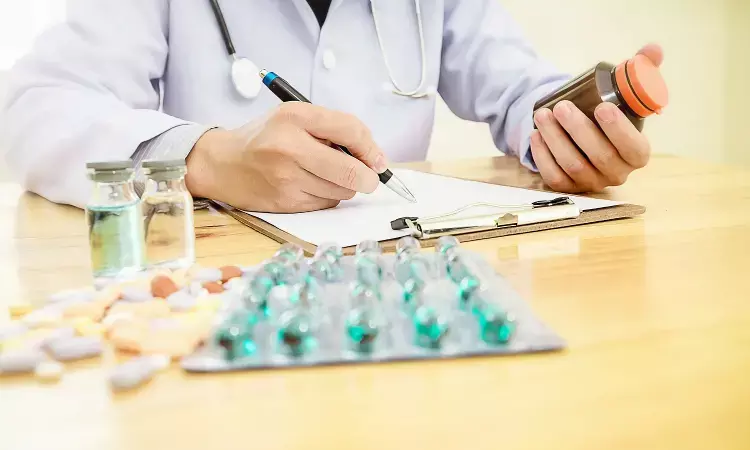- Home
- Medical news & Guidelines
- Anesthesiology
- Cardiology and CTVS
- Critical Care
- Dentistry
- Dermatology
- Diabetes and Endocrinology
- ENT
- Gastroenterology
- Medicine
- Nephrology
- Neurology
- Obstretics-Gynaecology
- Oncology
- Ophthalmology
- Orthopaedics
- Pediatrics-Neonatology
- Psychiatry
- Pulmonology
- Radiology
- Surgery
- Urology
- Laboratory Medicine
- Diet
- Nursing
- Paramedical
- Physiotherapy
- Health news
- Fact Check
- Bone Health Fact Check
- Brain Health Fact Check
- Cancer Related Fact Check
- Child Care Fact Check
- Dental and oral health fact check
- Diabetes and metabolic health fact check
- Diet and Nutrition Fact Check
- Eye and ENT Care Fact Check
- Fitness fact check
- Gut health fact check
- Heart health fact check
- Kidney health fact check
- Medical education fact check
- Men's health fact check
- Respiratory fact check
- Skin and hair care fact check
- Vaccine and Immunization fact check
- Women's health fact check
- AYUSH
- State News
- Andaman and Nicobar Islands
- Andhra Pradesh
- Arunachal Pradesh
- Assam
- Bihar
- Chandigarh
- Chattisgarh
- Dadra and Nagar Haveli
- Daman and Diu
- Delhi
- Goa
- Gujarat
- Haryana
- Himachal Pradesh
- Jammu & Kashmir
- Jharkhand
- Karnataka
- Kerala
- Ladakh
- Lakshadweep
- Madhya Pradesh
- Maharashtra
- Manipur
- Meghalaya
- Mizoram
- Nagaland
- Odisha
- Puducherry
- Punjab
- Rajasthan
- Sikkim
- Tamil Nadu
- Telangana
- Tripura
- Uttar Pradesh
- Uttrakhand
- West Bengal
- Medical Education
- Industry
Aprotinin aerosol reduces hospital stay in COVID-19 patients

FRANKFURT: SARS-CoV-2, the coronavirus that causes COVID-19, needs its spike proteins to dock onto proteins (ACE receptors) on the surface of the host cells. Before this docking is possible, parts of the spike protein have to be cleaved by host cell's enzymes called proteases. In 2020, a scientific team led by Professor Jindrich Cinatl (Goethe University Frankfurt, Germany), Professor Martin Michaelis and Professor Mark Wass (both University of Kent, UK), conducted cell culture experiments and found that aprotinin, a protease inhibitor, could inhibit virus replications by preventing SARS-CoV-2 entry into host cells.
In a more recent study, the research consortium further showed that aprotinin is also effective against the Delta and Omicron variants.
Now, a Spanish research consortium has published the findings of a phase III clinical study investigating the use of an aprotinin aerosol in COVID-19 patients. Among other improvements, aprotinin treatment reduced the length of hospital stays by five days.
Professor Jindrich Cinatl, Goethe University Frankfurt, said: "This shows how scientific collaborations work even without a direct relationship between researchers. I am very glad that our cell culture study inspired this successful clinical trial".
Professor Martin Michaelis, University of Kent, said: "Our cell culture data looked very convincing. It is exciting that aprotinin has now also been shown to be effective against COVID-19 in patients."
To read the full article, click on this link:
Dr Kamal Kant Kohli-MBBS, DTCD- a chest specialist with more than 30 years of practice and a flair for writing clinical articles, Dr Kamal Kant Kohli joined Medical Dialogues as a Chief Editor of Medical News. Besides writing articles, as an editor, he proofreads and verifies all the medical content published on Medical Dialogues including those coming from journals, studies,medical conferences,guidelines etc. Email: drkohli@medicaldialogues.in. Contact no. 011-43720751


